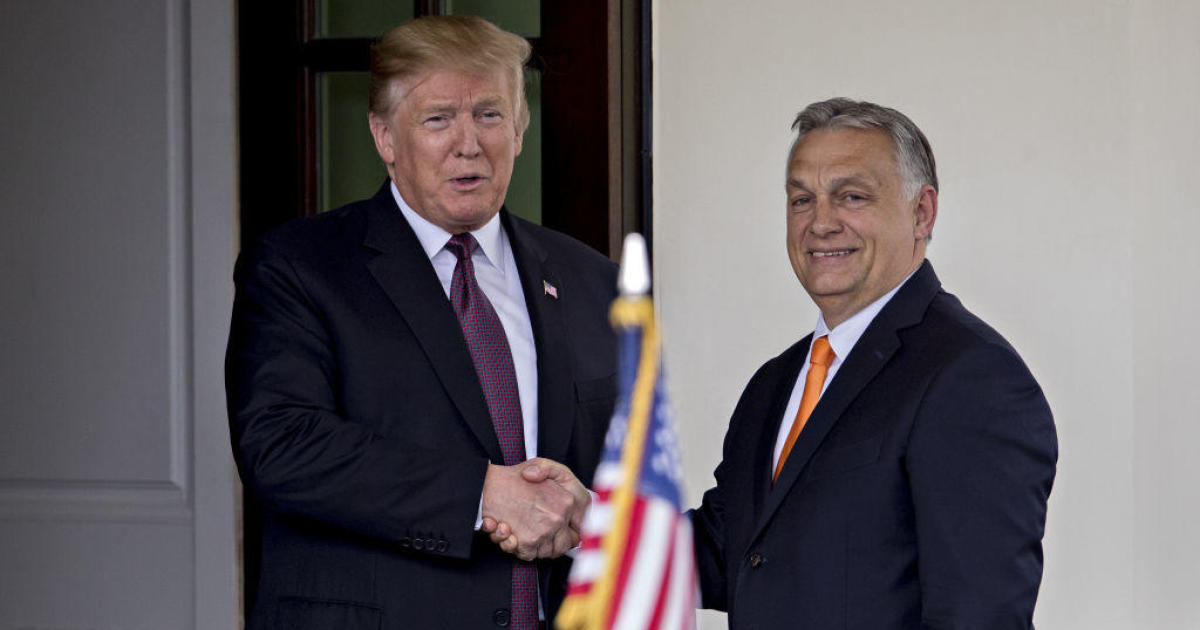European leaders rarely weigh in on U.S. elections before they’ve taken place, but Hungary’s far-right Prime Minister Viktor Orbán has ignored those conventions.
Orbán made his bold statement during a news conference before addressing the European Parliament in Strasbourg, France on October 10th. He expressed his anticipation of Donald Trump’s return to power, stating that if Trump is reelected, they will open multiple bottles of champagne. Orbán also expressed confidence that Trump would resolve the Ukraine war before he even takes office, a promise that Trump himself has vowed to fulfill.
The close relationship between Orbán and Trump is evident in Orbán’s public endorsement of Trump and their meetings at Mar-a-Lago in July. Trump often speaks warmly of Orbán at political rallies and in media interviews, highlighting the bond between the two leaders.
However, Orbán’s support for Trump is not without criticism. Several Senate Republicans have visited Hungary and expressed concerns about the country’s deepening ties with Russia. They worry about the erosion of democratic institutions in Hungary and the influence of Russia on the Hungarian government.
Orbán has been in power for 14 years and has faced criticism from the European Union for his restrictive policies on immigration, LGBTQ+ rights, press freedom, and judicial independence. The EU has accused his government of violating the union’s standards on the rule of law and democracy.
One point of contention between Hungary and the U.S. is the issue of Russian assets frozen after Russia’s invasion of Ukraine in February 2022. The U.S. and Europe want to use some of these assets to fund loans to Ukraine, but Orbán’s government is hesitant to make a decision until after the U.S. presidential election, citing the need to understand the future U.S. administration’s stance on the issue.
Orbán’s predictions about Trump’s plans for Ukraine have raised eyebrows. In an interview, Orbán suggested that Trump would not provide financial or military support to Ukraine, leading to the end of the war due to lack of resources. This contradicts the substantial military and humanitarian aid the U.S. has provided to Ukraine since the conflict began.
Hungarian Foreign Minister Péter Szijjártó has also expressed concerns about the potential impact of a non-Trump administration on Europe, warning of a difficult period ahead if Trump is not reelected. Orbán has praised Trump as a “maverick” and a refreshing leader among world politicians, emphasizing the need for new and dynamic leaders in the global arena.
However, U.S. Ambassador to Hungary David Pressman has criticized Orbán’s overt support for Trump, calling it a dangerous proposition that could harm the best interests of the Hungarian people. Pressman highlighted the need to maintain a non-partisan approach in bilateral relationships and expressed concern about Orbán’s interference in U.S. elections.
Orbán’s expanding role on the world stage has drawn attention, especially during Hungary’s presidency of the European Commission. His slogan “Make Europe Great Again” has raised eyebrows, particularly in light of his visits to Kyiv, Moscow, China, Washington, and Florida. Orbán’s trip to Moscow was met with criticism from EU and NATO leaders, who disapproved of his actions.
The issue of Russian influence in Slovakia, under Prime Minister Robert Fico, has also raised concerns. Fico’s nationalist policies have led to a halt in military aid to Ukraine and a proposal to lift EU sanctions on Russia. Fico has expressed support for Trump and predicted that a Trump victory would end the war in Ukraine before he takes office.
Slovakia’s shifting stance on Ukraine and Russia has been noted by U.S. Senator Mark Warner, who warned of Russian influence campaigns in Slovakian elections. The energy ties between Hungary, Slovakia, and Russia have further complicated the situation, with both countries heavily reliant on Russian oil and gas.
Overall, the close relationship between Orbán, Trump, and Fico, along with their shared views on Ukraine and Russia, has raised concerns about the future of European politics and the potential impact of the U.S. presidential election on international relations. The complex dynamics between these leaders, their countries, and global powers like the U.S. and Russia highlight the intricate web of alliances and conflicts shaping the geopolitical landscape.









